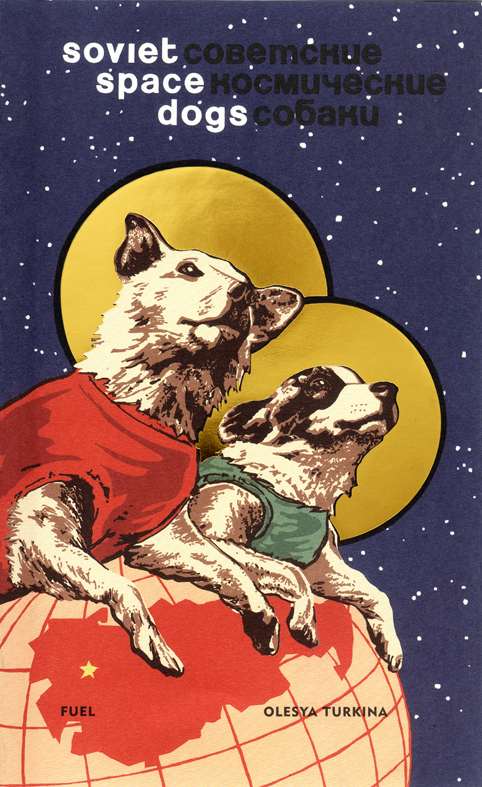Today was the first day of my global politics class, I’m only taking one political science class this semester due to needing the other course slots for history and psychology which is my major. I actually have the same professor from my first semester political science class so I’m treading in familiar waters. I’m still not completely healthy, a cough and sore throat maybe bronchitis, so I wasn’t confident and worried I’d have to dash out if a cough attack creeped up. I got to class early and waited with two others. When the time for class was getting closer obviously more students came in and I noticed this class is bigger in terms of amount of students, the room is normal size.
My professor arrived and it was very nostalgic to hear him talk, I had the passing thought throughout wondering if he remembered me. Unfortunately, just like in my history class we did icebreakers. This time he wanted our names, program, and for us to state something that happened post WWII related to international relations. When the students were doing their intros I noticed that they kept referencing recent events and for a moment I got confused, was it any even after WWII or recent events which are obviously post-WWII. Thankfully my question was answered when a student mentioned the US invasion of Afghanistan. While there were many events I wanted to use for my icebreaker I decided to play it safe and hope that nobody else talked about the expansion of BRICS. Most people mentioned Israel-Palestine, Ukraine-Russia, Taiwan, and apparently the Philippines and China are having a dispute; thankfully no one mentioned BRICS. By the time it got to me I was the last to go. He seemed pleasant when I brought up BRICS and proceeded to briefly educate the class on it, I then helped him with remembering the five new member states, which would’ve been six but Argentina refused. My professor then stated that in his opinion it was a very bad move for Argentina to not join BRICS and if it were him he definitely would’ve said yes.
Because the topic of Palestine was brought up quite a bit and Canada’s role in the world in general my professor told us that the government plans to take in one thousand Gazans. With that he asked if that was enough. Most of us said “no” for obvious reasons and he agreed. He said it was not enough, we did so much for Ukraine why can we not do the same for Gazans. We have to be consistent and Canada is huge, it doesn’t make sense. He then went on to talk about change and continuity; that thee have been many changes since WWII but there have also been continuous activities. Sufi Generis vs déjà vu, we were asked to provide examples for each. A girl spoke up, and I believe she was in my political science class last semester, sand said colonialism as a continuity. There was brief reference to neo-colonialism from my professor and the girl cited what Israel is doing to Palestine as a form of colonialism with their settlers. My professor was kind of resistant in a way that maybe she was stretching the definition of colonialism, I was thinking maybe imperialism was a better descriptor but I don’t disagree with her. Then some guy piped up attempting to argue in favour of Israel stating that they tried to give land back but Palestine refused the offer, he then said that calling what Israel is doing “colonialism” is hateful; that this isn’t colonialism, its a war. What the fuck? A real life Zionist in the flesh in my class… this semester is going to be a nightmare…
Anyway with that war was added to the continuity side and we shifted focus to changes. Multipolarization with reference to Russia and China relations, before there was the Sino-Soviet conflict but now they are working together. There are Arab and North African countries supporting Israel for economic purposes; globalization; importance of non-state actors; and global governance has emerged. Just so you know this wasn’t part of the lecture/course material, we were still doing intro stuff and we haven’t even cracked open the syllabus. Actually after this we did get to the syllabus.
So he made sure to emphasize that deadlines (specifically for the research paper) are fixed no matter the circumstances. Something terrible could happen and it would not change. He said he does this to prepare us for real world deadlines in the workplace. Well that just makes me believe that workplaces should be more accommodating but what do I know? Moving on, 10% of the grade is from a seminar we have to doo in front of the damned class. Are you fucking kidding me?! He said this was to help with public parking but it only makes me want to die. I don’t know how I held myself together but I was about to cry, once again. This shit is just too much for me… How this seminar presentation thing will go is that he will give use a topic thing, a reading, and then we have to make a presentation about it. This class has me questioning my entire life choices and maybe I’ve followed the wrong path… obviously I may be overthinking this and clearly I’m in my feelings but damn, i cannot catch a break… I don’t know how Im going to reign in my social anxiety before the seminars…
After that he actually dove into course material. This usually doesn’t typically happen with other classes but I guess this professor is built differently. We went over the definition of what international relations is and non-state actors. I don’t think t is relevant to go into i as its repeated information but one thing that was interesting/new was learning the terms “Dunantist” and “Wilsonian,” the former meaning a humanitarian organization that is politically neutral, and the latter meaning a humanitarian organization that is political. We learned them when discussing NGOs. He then asked us which humanitarian organization does the Ukrainian government prefer? Most of us said Wilsonian and he said so as well, then stating the Ukrainian government does not want a humanitarian organization that is neutral to the genocide of Ukrainians… what? Correct me if I’m wrong but is it a genocide? Comparing it to what Israel is doing to Palestinians (they even say it out loud) it doesn’t seem like it…
Let’s move on before I get side tracked. We talked about what a state is, which all of us here know, and went into what makes up each component of a state: what makes up territory, what makes up population, and what makes up sovereignty. When referring to population and citizenry passports were talked about; how passports are later to the relations between countries. Someone with a Canadian passport is going to have an easier time than someone with a Mali passport. He told us that this is kind of a colonial mindset due to the mindset with “club membership” of passports. Certain countries have it easier and don’t make the effort to ease relations with those that are seen as lesser (this is my own tidbit). Weirdly enough, apparently the Singapore passport is the best in the world and he doesn’t know why. Does anyone here know why that is? With that he ended this off with encouraging us to get NEXUS because it makes crossing borders easier, you can skip lines.
When talking about sovereignty he asked us if Taiwan was a state: many said yes and I was one of few that said no. It has weak sovereignty and contested statehood; Taiwan has good internal governance but not external. Some guy spoke up saying everyone except China sees Taiwan as a state which I don’t think is accurate. At all. Don’t many UN members deny Taiwan as a state? Just because western states see Taiwan as sovereign, not because of “freedom” but for western advantages, leant mean the rest of the world agrees. Many UN members recognize Palestine but they aren’t granted statehood. The logic is flawed is what I’m trying to get at.
We need the lecture talking about Metonyms, aka shorthand. They are used frequently in international relations like “Foggy Bottom” meaning the US state department.
Thats all I have for you for day one of semester three, I hope this was an interesting read. I’m going to try to be more personable with these entries rather than just robotically typing down material. While that may be good for some people I feel it would be in my best interest to deviate from that structure. It might also be more entertaining to read and comment on, but who knows?
Note: Also my illness is improving! I still have a cough (I had to fight it during class) but by the end of the day there is no congestion so thats good. My throat is sore though…
Weirdly enough, apparently the Singapore passport is the best in the world and he doesn’t know why. Does anyone here know why that is?
so by best they mean that you can travel to almost any country in the world visa-free. the reason is because apparently they are geopolitically neutral, rich, and also quite small.
Interesting. That makes sense as he did say that passport strength is based on that country’s relationship with others, the better the reputation the better the perks. I guess I was surprised at Singapore being number one due to how little I hear about it but I guess its neutrality would do that. I first thought maybe it was due to their abundance of wealth and it looks like I was correct.
Though, the conversation around who’s passport is better than others is telling, how can a country have good relations when the most powerful are constantly oppressing them, thus devaluing their passport. That’s not really a question but more so a revelation I had. It’s not profound but it is something!
yeah I don’t think people with powerful passports (US, Canada, EU, Japan) really get what its like to not have one. you cant just choose where you want to go. it takes months to clear the simplest visa (if you have the money to do that at all), which has to be constantly renewed. i often think about the walled wall infographic and how its a perfect representation of how the west has created its one free travel bubble.
I’ve never had to travel with a visa before and that’s the reason why, I guess I never really knew that. With the conflicts going on I wonder how that will effect passports, I’ve been reminded that once the Ukraine war ends Russia will most likely have very tense relations with those that funded the war so going there might be difficult (I want to do my PhD there). That infographic is really interesting, I wonder if I should show it to my professor.


